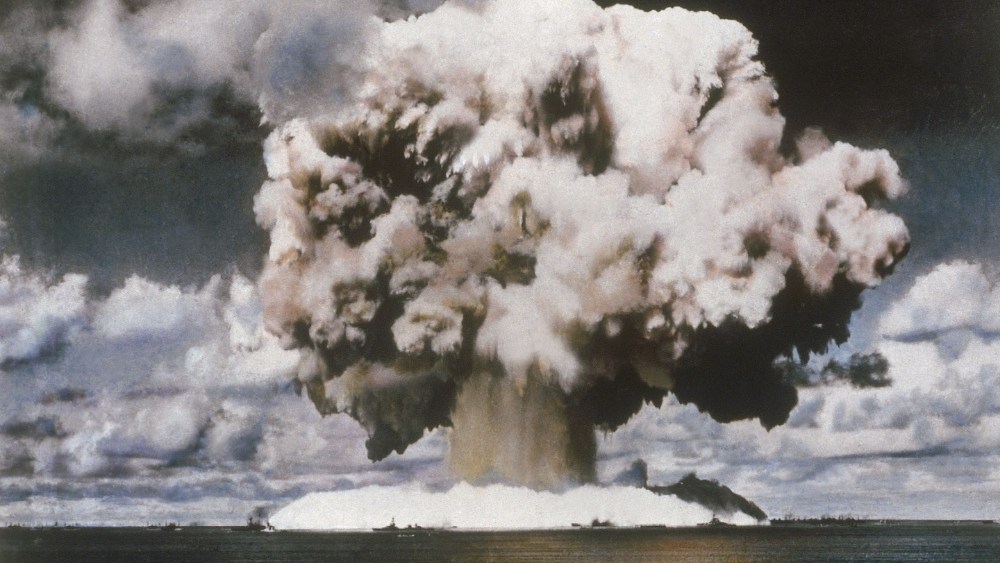Australian documentary Atomic Paradise has been selected for the Taiwan Creative Content Fest, drawing international attention to a project that reconstructs one of the 20th century’s most destructive legacies through the eyes of those who lived through it.
Directed by award-winning Indigenous director and screenwriter John Harvey, this feature-length documentary challenges what he calls the sanitary language of nuclear ‘testing’, a term that obscures the reality that a real bomb went off on real land, inhabited by real people.
“These were not ‘experiments.’ These were real bombs, detonated on real land, in real people’s homes,” Harvey said. “In the Pacific, the bomb was not an idea or an experiment. It was a force that tore apart real lands, real families, and real lives, and it continues to do so today.”
The project has already generated a lot of buzz in the international documentary community. At the Australian International Documentary Council (AIDC), Atomic Paradise won both the Sunnyside of the Document Award and the Doc Edge Award.
Harvey brought a unique approach to the nuclear narrative. The story was shaped by childhood memories of hearing about French President Jacques Chirac and the Rainbow Warrior bombings, but he realized that indigenous voices were absent from those stories. His 2023 archival film Still We Rise won the AIDC Award for Best Documentary and the Directors Guild of Australia Award for Best Director, establishing him as a powerful voice in Indigenous storytelling.
“Atomic Paradise is a feature-length documentary that uses film to enlighten audiences and challenge colonial myths,” Harvey explains. “This film provides a new perspective, drawing on indigenous knowledge systems to understand nuclear history and how it will shape humanity’s future.”
The documentary eschews traditional narrative structures in favor of indigenous oral storytelling traditions, organizing its content into seven chapters with character archetypes rather than following a single protagonist. The film spans the Pacific Rim, from the United States to French Polynesia to Australia, and deliberately shifts the focus from the nuclear superpowers to the indigenous peoples who were “targeted in so-called ‘tests’.”
Producer Aline Jacques, who co-founded SAM Content with two-time Emmy-nominated director Sally Aitken in 2021, says the project is “advanced in development and financing.” Jack points out that the TCCF is an important opportunity to “ensure that broadcasters in Asia-Pacific complete their financial plans and, more importantly, reach audiences in Asia-Pacific.”
This production was supported by Screen Australia, Screen NSW and Screen Queensland. The team developed the methodology using the SA Pathway and Protocol, while also building on protocols outlined by the Nuclear Truth Project, which promotes cooperation among indigenous peoples affected by nuclear testing.
Aitken serves as executive producer and producer on the project. The Sundance alumna’s feature documentaries “Playing with Sharks” and “Every Little Thing” both premiered in competition at the festival.
SAM Content’s recent schedule includes The Hunt for the Family Court Killer for Paramount+/Network Ten and multiple projects for major broadcasters including the BBC, ABC, National Geographic, PBS and SBS.
The production schedule calls for all financing to be completed by March 2026, with pre-production to begin in April and principal photography to begin in May. Post-production will begin in July, with final mastering scheduled for December 2026. The team plans to submit it to major international festivals, targeting premieres in Sundance and Toronto in 2027.
Harvey is the first recipient of the Indigenous Writers Residency in partnership with Boston University and the Indigenous Writers Network, working in the fields of film, theater, and visual arts. His award-winning play “The Return” unearths the dark story of the theft of Indigenous remains for scientific research, and his film “Katele (Mudskipper)” won Best Short Film at Flickerfest and MIFF.
“‘Atomic Paradise’ not only sheds light on the unseen perspectives of our nuclear history, but as we grapple with this reality as it unfolds today, it allows us to truly understand one of the greatest existential threats to humanity in new and profound ways,” Harvey says.

